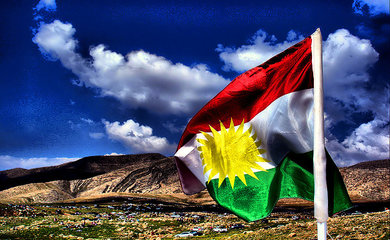Since the two-and-a-half-year-old truce between the Turkish state and the Kurdistan Workers Party (PKK) group broke down in recent weeks one often sees and hears the term “Kurdish separatists” or “separatist group” being used to describe the latter. One finds this description problematic. That the PKK had separatist tendencies for their own Kurdish state in southeastern Turkey was indeed so, however in recent years the PKK and its affiliates have sought cultural and political autonomy and equality more than anything else. And there is the conspicuous fact that many of the more basic rights they claimed to be pursuing on behalf of the Kurds in Turkey have been attained. Kurds can teach their children their own language, give them Kurdish names and celebrate their own cultural festivities and traditions.
These changes had seen to the PKK take a more conciliatory approach and promote a kind of federal democracy wherein the rights of minorities like them is recognized, protected and upheld. Similarly their offshoot in neighbouring Syria, the Kurdistan Democratic Party (PYD), has consistently said that it will work with Damascus provided the government there is democratised.
These are hardly consistent with the desires of separatists. Indeed what the PKK has sought on behalf of Turkey’s Kurds in recent years has been equal participation in a federal democratic state. Many Kurds in Turkey pinned their hopes on the leftist Kurdish People’s Democratic Party (HDP) representing Turkish Kurds in Turkey’s parliament. That party won the some seats in parliament in early June. By securing those seats in parliament they denied Turkish President Recep Tayyip Erdogan’s party the number of seats needed (330 of the parliaments 550) to forward a referendum over whether or not a presidential system should replace the current parliamentary one. Since that time a new government has yet to be formed. Critics and opponents of Erdogan accuse him of stalling the formation of a new government in Turkey and cracking down hard on the PKK so he can call for a re-election anticipating that the renewed violence will lead many Turks to reconsider voting for the HDP–which Erdogan has openly conflated with the PKK.
While the PKK were separatists in the past, events in recent weeks may lead to increased separatist tendencies among their ranks. Indeed one of the worrying things about Erdogan’s actions are that they may encourage separatism. Turkish Kurds who had no sympathy with the PKK, its ideology and its past actions may actually come to the bitter and sombre conclusion that no matter how much they try they will never truly be equals in Turkey and that separation may be the only way they can determine their own fate.
That has yet to be seen. But if the current crisis persists that may well be the outcome. Such an outcome could plunge Turkey into civil conflict and instability for the foreseeable future and may possibly lead to renewed calls among the Kurds to break from Ankara. Which would be truly disastrous for Turkey as it would see to the country effectively divided as it approaches its centennial.
While the Kurds of Syria and Turkey have sought some form of federal unity with the respective governments in their countries the respective situations with the Kurds in Iran and Iraq is a little more nuanced and complicated.
Like all the Kurdish-majority regions in the Middle East, Iranian Kurds have fought and been oppressed by the powers that be in Tehran – from which they briefly broke from in 1946 to form an independent Soviet-backed polity. Today however Tehran seeks to placate Kurdish grievances with Tehran through promises to invest more public funds into the northwestern Kurdish parts of Iran. Iran’s President Hassan Rouhani recently even visited them and the first department of Kurdish language and literature studies was recently introduced in an Iranian university – a clear sign that Tehran wants its Kurds to feel like equal citizens and not a marginalised minority. It comes after an Iranian Kurdish women threw herself to her death from a hotel to escape an alleged rape attempt by a member of the authorities in the Iranian Kurdish city of Mahabad. This saw to angry Iranian Kurds burning down the hotel and venting their discontentment with the Iranian regime.
The only Kurdish region which has autonomy and regional self-rule is Iraqi Kurdistan. The present government, Massoud Barzani’s Kurdistan Democracy Party (KDP), in power in the Iraqi Kurdistan regions capital, Erbil, seeks to introduce an independence referendum in the near future. The KDP’s desire to become completely independent from Baghdad (or undertake an “amicable divorce” from it as one of its spokespersons rather wittily put it) make them the real “Kurdish separatists”. And they are the Kurdish party who are on the most cordial terms with Ankara and have been for approximately two decades now.
Consequently when one hears the term “Kurdish separatists” forwarded one is reminded that Ankara’s policies are, predictably, engendering separatist tendencies amongst the most hardliner of Kurdish elements in Turkey who hitherto had given up on such dreams of independence in favour of pursuing complete equality with their countrymen.
Photo by Jan Sefti, of the Kurdish flag. Licensed under a Creative Commons Attribution-ShareAlike 2.0 Generic license

